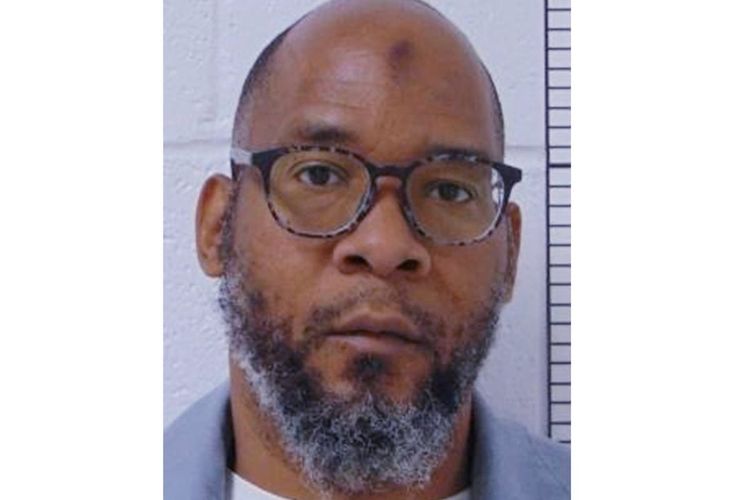A Missouri death row inmate faces execution. Prosecutors argue he’s ‘likely innocent’

Daily US Headlines Delivered To Your Inbox
Latest US Headlines: Your Quick Briefing
Latest US Headlines: Your Quick Briefing
A man from Missouri is scheduled to be executed for a murder that took place in 1998. Many organizations, including those advocating for innocence as well as the prosecution, believe he probably did not commit the crime.

Marcellus Williams, aged 55, is set to receive a lethal injection at 6 PM Central Time on Tuesday. He was convicted of killing Lisha Gayle, a social worker and former journalist, who was brutally stabbed multiple times during a break-in at her suburban St. Louis residence nearly 30 years ago.
On Monday, Governor Mike Parson of Missouri, a member of the Republican Party, denied Williams' plea for clemency, which aimed to save him from the death penalty and have him given a life sentence in prison instead.
At nearly the same time, the Missouri Supreme Court also denied a plea to stop the execution.
Williams' attorneys contend that several mistakes occurred during the trial, such as the prosecution's supposed mismanagement of the murder weapon and claimed issues with the jury selection process. They assert that the prosecutor wrongly dismissed a potential Black juror based on racial grounds.
"Missouri is set to carry out the execution of a man who is innocent, raising serious doubts about the credibility of the whole criminal justice system," stated Tricia Rojo Bushnell, the lawyer representing Marcellus Williams, on Monday.
"Considering all the details surrounding Marcellus Williams' situation – especially the recent discoveries that the prosecutor in his trial dismissed at least one Black juror based on race, along with the victim's family and the current Prosecuting Attorney opposing the execution – it's crucial for the courts to intervene to stop this irreversible injustice," Bushnell stated.

In Williams' initial trial, the prosecutors argued that he unlawfully entered Gayle's residence on August 11, 1998. While inside, he noticed water flowing from the shower and discovered a sizable butcher knife.
Gayle, who used to work as a reporter for the St. Louis Post-Dispatch, was attacked and stabbed 43 times when she went downstairs. Her handbag and her husband's laptop were taken during the incident.
Officials reported that Williams took a jacket to hide the blood on his shirt. His girlfriend questioned him about why he would wear a jacket when it was so warm outside. She mentioned that later on, she noticed a purse and a laptop in his car, and that Williams sold the laptop just a day or two after that.
Concerns about the DNA evidence have caused postponements in the trial and resulted in two prior halts to the execution.
In January 2015, Williams was only a few days away from being executed when the state Supreme Court intervened, pausing the process so his lawyers could seek further DNA analysis.
In August 2017, he was only hours from facing execution when the Republican Governor Eric Greitens intervened. He issued a temporary halt to the execution and set up a group of retired judges to review the case. However, that group never came to a decision.
Concerns regarding the DNA evidence prompted St. Louis County Prosecuting Attorney Wesley Bell to seek a hearing that questions Williams’ conviction.
However, just a few days prior to the hearing on August 21, fresh testing revealed that DNA found on the knife matched individuals from the prosecutor's office. These individuals had handled the knife without wearing gloves after the initial tests conducted by the crime lab.
There has been no DNA evidence suggesting any different person may be involved.
As reported by The Innocence Project, Gayle's relatives are against the execution. If carried out, Williams' execution would mark the third in Missouri this year and the 100th since the state reinstated capital punishment in 1989.













































